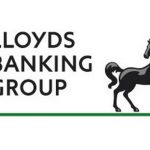One of Britain’s biggest high street banks has agreed a payout to settle a case involving “unfair” mortgages – giving hope to thousands of people who have been left owing huge sums.
On the eve of a trial set to last six weeks, Bank of Scotland – part of Lloyds Banking Group – and a law firm representing 160 current and former customers reached an out-of-court settlement that means the bank will not face a public grilling.
The case involves a Bank of Scotland product called the shared appreciation mortgage (Sam), which has been accused of ruining lives by leaving some people owing 10 or 12 times the sum they originally borrowed.
Teacher Stern, the law firm behind the action, had claimed that Sams were “entirely unfair” products that have left borrowers trapped in their homes, unable to sell up.
The settlement is cloaked in secrecy, with the bank and the law firm only saying they had “agreed a commercial settlement, without any admission of liability”.
Nothing was disclosed about how much money has changed hands, although some of the affected borrowers have been saddled with debts of several hundred thousand pounds – and some owe in excess of £1m.
Individuals who join a claim of this type will sometimes be asked to pay a fee of perhaps £10,000. That may suggest the affected borrowers would not have agreed to forgo their day in court unless they secured a reasonable payout.
Those who were eagerly awaiting the court case – which was due to start on 31 January – included Gary Cooper, whose case was featured in Guardian Money just before Christmas.
 View image in fullscreenGary Cooper’s parents ended up owing £500,000 on a £42,500 loan. Photograph: Gary Cooper
View image in fullscreenGary Cooper’s parents ended up owing £500,000 on a £42,500 loan. Photograph: Gary Cooper
His parents took out a £42,500 Sam loan that has ballooned into a debt currently estimated at more than £500,000. The amount owed is so large because the deal they signed entitled the lender to 75% of any house price rise over the life of the loan.
Bank of Scotland sold thousands of Sam mortgages between late 1996 and early 1998, and an estimated 2,000-plus people still have one. The other bank that sold Sam loans for a brief period was Barclays.
They typically allowed people to borrow up to 25% of the property’s value, and usually there were no repayments to make during the lifetime of the loan.
In return, borrowers were required to pay back the original amount plus a share of any increase in the value of their home when the mortgage was repaid, or when they died and the house was sold.
This share was usually worked out on a three-to-one basis – so if someone borrowed 25% of the value, they would be in line to hand over 75% of the future growth in value.
Cooper – who is not one of the 160 claimants – is hopeful that the settlement may provide a way forward that will help others.
A joint statement from Bank of Scotland and Teacher Stern said: “The terms of the settlement agreement are confidential. There are no changes to the mortgages or their terms and conditions.”
The bank has previously said that it recommended borrowers took financial advice to ensure they understood the product and that it was suitable for their needs, and added that all borrowers were advised by their own solicitor.




